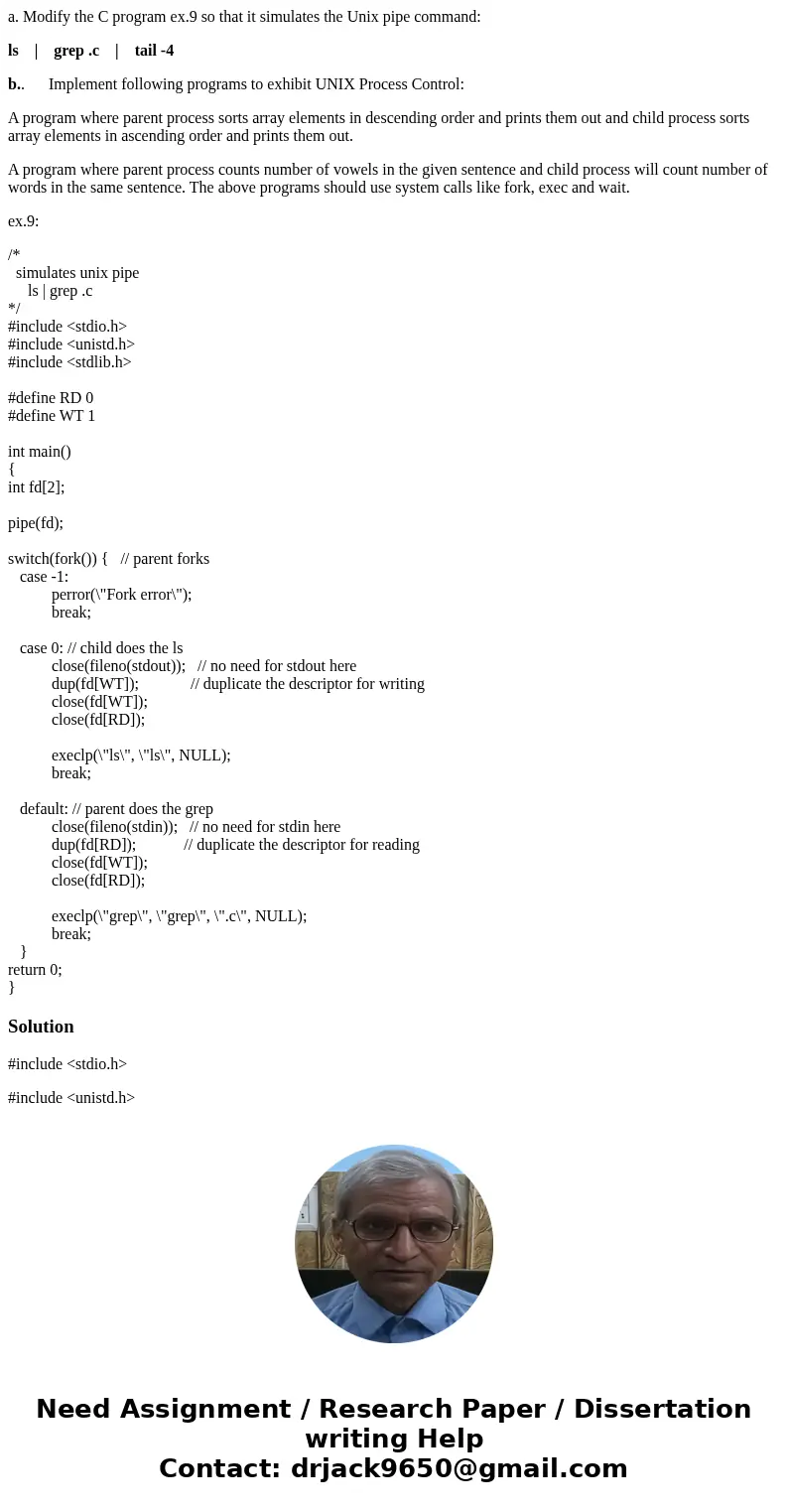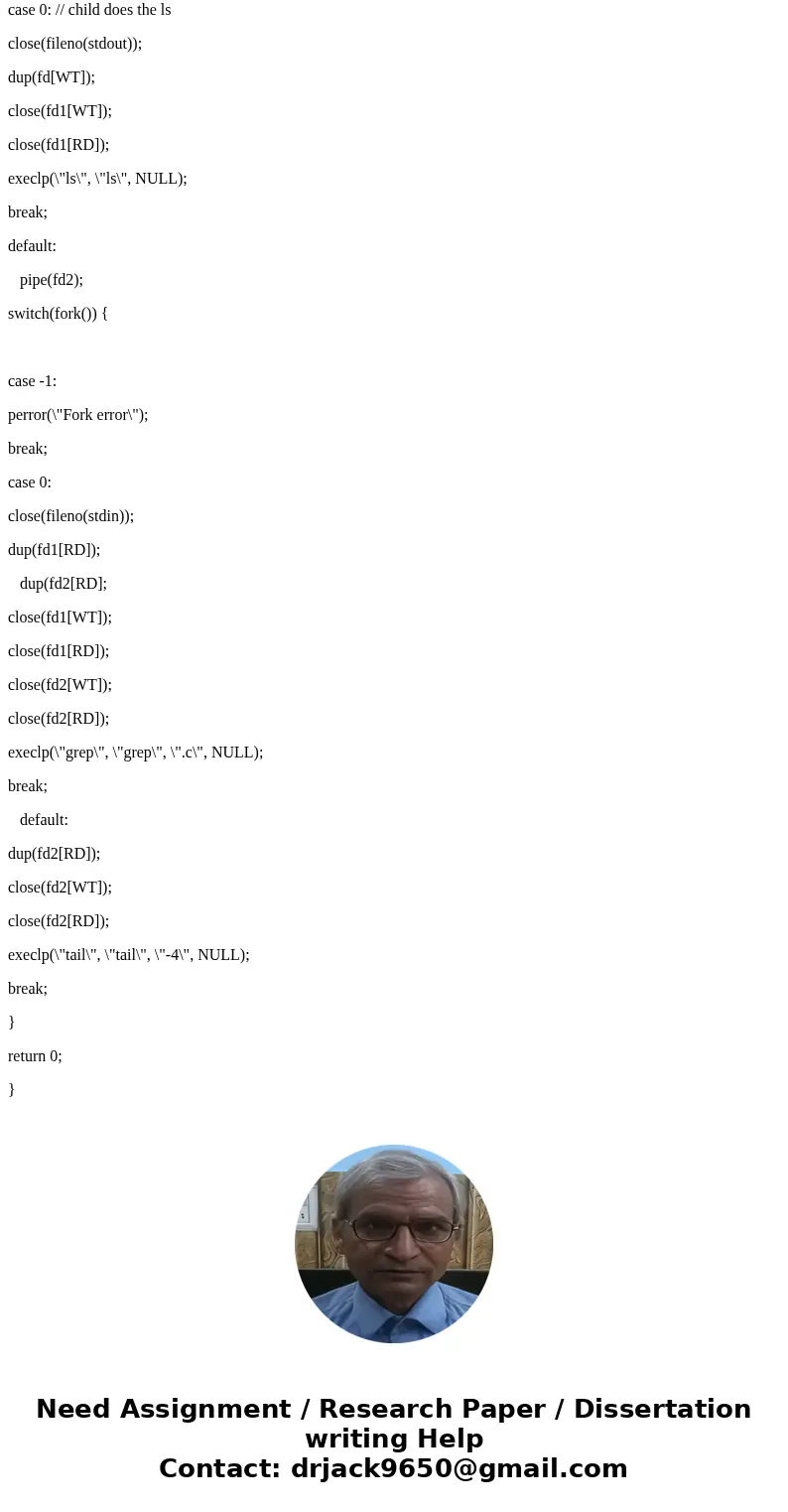a Modify the C program ex9 so that it simulates the Unix pip
a. Modify the C program ex.9 so that it simulates the Unix pipe command:
ls | grep .c | tail -4
b.. Implement following programs to exhibit UNIX Process Control:
A program where parent process sorts array elements in descending order and prints them out and child process sorts array elements in ascending order and prints them out.
A program where parent process counts number of vowels in the given sentence and child process will count number of words in the same sentence. The above programs should use system calls like fork, exec and wait.
ex.9:
/*
simulates unix pipe
ls | grep .c
*/
#include <stdio.h>
#include <unistd.h>
#include <stdlib.h>
#define RD 0
#define WT 1
int main()
{
int fd[2];
pipe(fd);
switch(fork()) { // parent forks
case -1:
perror(\"Fork error\");
break;
case 0: // child does the ls
close(fileno(stdout)); // no need for stdout here
dup(fd[WT]); // duplicate the descriptor for writing
close(fd[WT]);
close(fd[RD]);
execlp(\"ls\", \"ls\", NULL);
break;
default: // parent does the grep
close(fileno(stdin)); // no need for stdin here
dup(fd[RD]); // duplicate the descriptor for reading
close(fd[WT]);
close(fd[RD]);
execlp(\"grep\", \"grep\", \".c\", NULL);
break;
}
return 0;
}
Solution
#include <stdio.h>
#include <unistd.h>
#include <stdlib.h>
#define RD 0
#define WT 1
int main()
{
int fd1[2];
int fd2[2];
pipe(fd1);
switch(fork()) {
case -1:
perror(\"Fork error\");
break;
case 0: // child does the ls
close(fileno(stdout));
dup(fd[WT]);
close(fd1[WT]);
close(fd1[RD]);
execlp(\"ls\", \"ls\", NULL);
break;
default:
pipe(fd2);
switch(fork()) {
case -1:
perror(\"Fork error\");
break;
case 0:
close(fileno(stdin));
dup(fd1[RD]);
dup(fd2[RD];
close(fd1[WT]);
close(fd1[RD]);
close(fd2[WT]);
close(fd2[RD]);
execlp(\"grep\", \"grep\", \".c\", NULL);
break;
default:
dup(fd2[RD]);
close(fd2[WT]);
close(fd2[RD]);
execlp(\"tail\", \"tail\", \"-4\", NULL);
break;
}
return 0;
}



 Homework Sourse
Homework Sourse